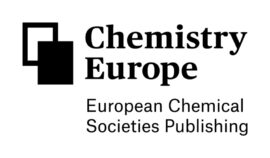Professor Detlef Lohse is Distinguished University Professor of the University of Twente (The Netherlands).
Lohse received his Diploma degree in Physics from the University of Bonn (Germany) in 1989, in the field of theoretical high energy physics. After obtaining his PhD degree on the theory of turbulence from the University of Marburg (Germany) in 1992 under the supervision of Professor Grossmann, Lohse has worked in the period 1993-1995 as a postdoctoral fellow with Professor Kadanoff at the University of Chicago (USA). He became research assistant at the Department of Physics of the University of Marburg in 1995 and obtained his “Habilitation” in Theoretical Physics from the same university in 1997. In 1998, Detlef Lohse was a Heisenberg Fellow of the Deutsche Forschungsgemeinschaft at the Ludwig-Maximilians University in Munich (Germany). He was promoted to full professor of physics of fluids at the University of Twente in 1998. Lohse (co-) authored ~ 340 publications in peer-reviewed journals with an average number of citations per paper of ~ 24 and a Hirsch index of 45.
He is the editor of Journal of Fluid Mechanics, Physica D, Nonlinearity, Journal of Turbulence, Journal of Statistical Mechanics: Theory and Experiment, and Physik Journal, and was editor and editorial board member of European Physical Journal B, Physical Review E and Annual Reviews of Fluid Mechanics. He obtained an ERC Advanced grant (2011) from the European Research Council and he leads four FOM programs. He has received various research awards, including the 2012 G.K. Batchelor Prize of the International Union of Theoretical and Applied Mechanics and Journal of Fluid Mechanics, the 2005 Spinoza Award of The Netherlands Science Foundation (NWO), the 2009 Simon Stevin Meesterschap Prize from the Stichting Technologische Wetenschappen (STW), the 2011 Physica Prize of the Dutch Physics Society, the 2012 Wim Nieuwpoort Award for Scientific Computation, and the 2012 AkzoNobel Science Award.
The research of Lohse’s Physics of Fluids group, focusing on granular matter; and micro- and nanofluidics, is characterized by the direct interaction of experiment, theory, and numerics, is problem-driven and often uses methods or knowledge from neighbouring science fields.
Lohse is an elected Member of the Royal Netherlands Academy of Sciences (2005-onwards), the Koninklijke Hollandsche Maatschappij der Wetenschappen (2012-onwards), the German Academy of Sciences “Leopoldina” (2002-onwards), Fellow of the American Physical Society (2002-onwards) and of the Institute of Physics (2004-onwards). He was knighted by the Dutch Queen as “Ridder in de Orde van de Nederlandse Leeuw” in 2010. Lohse serves on various national and international boards and panels for research, including member and now vice-chairman of the Executive Board of Stichting voor Fundamenteel Onderzoek van de Materie (FOM) and also of NWO-physics, Member at Large of the APS-Division of Fluid Mechanics Executive Board, and Chairman of the Euromech Turbulence Conference Committee.

